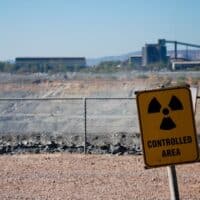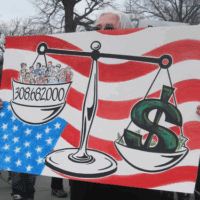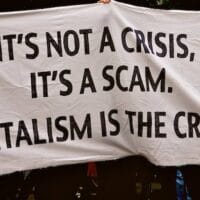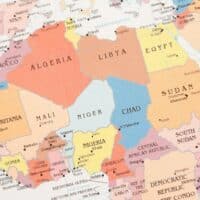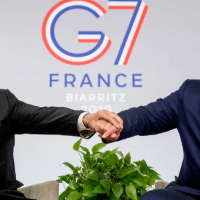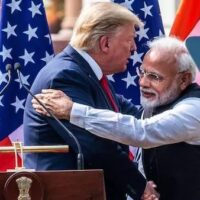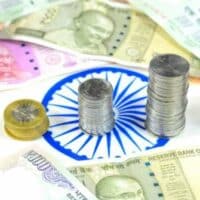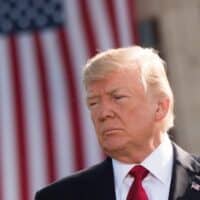-
Once more on minerals and imperialism
Against Trump’s threat to raise tariffs against imports from China, the Chinese government announced a temporary moratorium on the export of certain rare earth elements to the U.S.
-
India’s growing income inequality
THE World Bank has recently published a list of Gini coefficients for 61 countries relating in some cases to income distribution and in others to consumption expenditure distribution.
-
Capitalism’s rolling back of welfare spending
Donald Trump’s “big beautiful bill” which got passed by both houses in the U.S. and has now become law, is a massive assault on welfare spending.
-
Vilifying the Nehru-Mahalanobis strategy
It is very important to distinguish between the Left criticism and the neoliberal criticism of the dirigiste strategy.
-
The Military-Industrial-Academic Complex and Israel’s war machine
ISRAEL’s genocide in Gaza and the 12-day war between Israel and Iran saw Israel destroying all universities in Gaza and assassinating top scientists of Iran. Not a tear or word of condemnation from the U.S. and European powers.
-
Intellectuals and neo-fascism
When Bertolt Brecht wrote: “Hungry man; reach for the book” he was articulating the Left attitude to education, as something that broadens perceptions and hence is essentially emancipatory. The fascist attitude to education is diametrically opposite to this.
-
The recent upsurge in military expenditure
THERE is an upsurge in military expenditure all over the world which is spearheaded by the upsurge in Europe.
-
An enduring myth about capitalism
THERE are of course many myths about capitalism spun by economists. One of these myths spun by David Ricardo has endured for over two centuries. Ricardo had originally been an enthusiastic supporter of the introduction of machinery, dismissive of the argument by workers’ organisations of his time that it gave rise to unemployment.
-
Economics and the concept of progress
THE mercantilists had defined a nation’s prosperity in terms of the amount of precious metals it possessed and a nation’s progress in terms of the increase in its amount of precious metals.
-
Obliterating the truth about Nazi defeat
NAZI Germany was basically defeated by the Soviet Union. The sacrifice made by the Soviet people in defence of their country in that war was utterly unimaginable.
-
Neo-colonialism in West Africa
Francophone Africa was never fully decolonised.
-
U.S. imperialism and the project of New Cold War
The U.S., particularly oligarchs like Donald Trump, Elon Musk, Harlan Crow, and Rupert Murdoch, seeks to shape the world according to their own image. The hypothetical Mar-A-Lago accord, proposed by the Hudson Institute–a neoconservative think tank funded by right-wing billionaires–lays out a position paper calling for the U.S. government to restructure the global trade and financial architecture.
-
Tariff negotiations and the farmers
ELEMENTARY textbooks in economics invariably begin with a completely mythical concept: the concept of “perfect competition”, which is different from the concept of “free competition” that the classical economists and Marx had used.
-
Terror on the campus
Let us forget for a moment the fact that the very existence of Israel is an instance of ruthless settler colonialism that has displaced millions of Palestinians and taken over their land.
-
How countries like India should not respond to Trump’s tariffs
DONALD Trump has put off his proposed tariffs by ninety days; but countries like India have to respond to Trump’s measures whether now or after ninety days.
-
Trump’s tariff aggression
It is important for an intellectual position not only to be right but to be right for the right reasons; and the near-universal condemnation of Donald Trump’s aggressive imposition of tariffs, though right, is right for the wrong reasons.
-
Europe’s apparently puzzling bellicosity
ONE of the puzzling phenomena in world capitalism today is the bellicosity displayed by Europe vis-à-vis Russia.
-
Advancing the boundaries of science: From Oparin, Haldane, Bernal to today
One of the arguments in favour of a divine power–or god–is that life could not have arisen naturally and needed a touch of the divine to come into being.
-
Two alternative growth paradigms
Nobody can claim that the rate of growth of agricultural production, especially of food grain production, has been higher in the neoliberal period than during the years of dirigiste development that preceded it; it may have been somewhat lower but let us agree that it is certainly no higher.
-
Impossible for a president of the imperialist U.S. to be a peacemaker
ON Friday, February 28, when U.S. President Donald Trump sat in the Oval Office of the White House with Ukrainian President Volodymyr Zelenskyy, Trump mused: ‘I hope I will be remembered as a peacemaker’.

